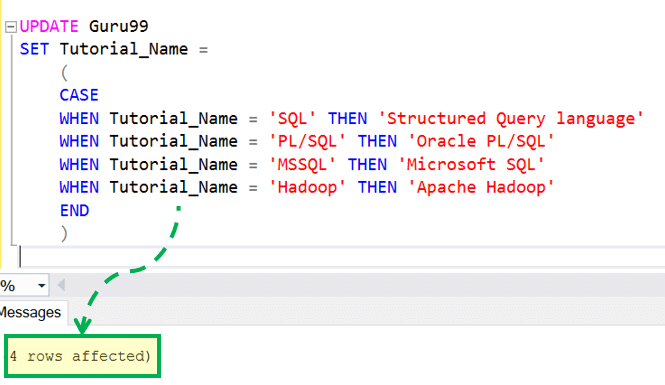You can include CASE expressions inside SQL queries, for example instead of a call to the DECODE function or some other function that translates from one value to another. Examples Example 13-shows the use of a simple CASE statement. Am i missing something in the above case statement? How to return multiple values using case. Or if video is more your thing,.
The Oracle 8i release introduced the CASE expression. Moreover, using the CASE function, multiple conditions provided in separate SQL queries can be combined into one, thus avoiding multiple statements on the same table (example given below). The function is available from Oracle 8i onwards.
The CASE expression evaluates a list of conditions and returns one of the multiple possible. Oracle CASE expression allows you to add if-else logic to SQL statements without having to call a procedure. Can XPress handle the first case statement below? Starting in Oracle 9i, you can use the CASE statement within a SQL statement. Rather than putting the data in a case statement where you might have to repeat that case statement in more than one query, you could create a table with static data, then joint to that table.

The advantage would be that you can change the data in the table easier than changing all of the queries that have that case statement. I want to return multiple values from a query in oracle. The CASE statement chooses from a sequence of conditions, and executes a corresponding statement. You can use nested CASE statements so that the return value is a CASE expression.
However, if you’re reaching the limit of 2expressions, I would be looking at the efficiency of the query itself, as most queries should not need 2expressions. Can You Use An Oracle CASE Statement In WHERE Clause? Yes, you can use an Oracle CASE in a WHERE.
So in another words, there is no way to shorten the code (like in SQL), you have to spell out each variable, even though they all have the end result of Yes? The simple CASE statement evaluates a single expression and compares it to several potential values. The searched CASE statement evaluates multiple Boolean expressions and chooses the first one whose value is TRUE. Please suggest how to use multiple conditions with CASE For r in C. If you, say, want to return two columns, each based on some condition, then you need to use two CASE expressions. True, but I generally try to steer clear of NVL when it comes to special values.
THEN = END WHEN not. You never know when that special value becomes a real one and your app silently breaks. CondVal ELSE END as Value There are two types of CASE statement, SIMPLE and SEARCHED.
You cannot evaluate multiple expressions in a Simple case expression, which is what you were attempting to do. Both formats support an optional ELSE argument. An expression must be of type int, short, byte or char. A case value should be a constant literal value and cannot be duplicated. Expression value is compared with each case value.
If a match found corresponding block of. Multiple rows are inserted into a table using the INSERT ALL statement and by using the inserting the of the select query. I need to evaluate columns based on a condition.
Case Switch and Case IF. There is a little help available when you select that function to tell you about how to use it.
Keine Kommentare:
Kommentar veröffentlichen
Hinweis: Nur ein Mitglied dieses Blogs kann Kommentare posten.